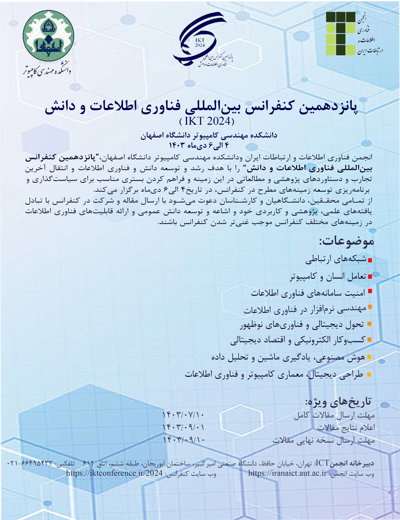0% Complete

نویسندگان :
کلمات کلیدی :
چکیده :
لیست مقالات بایگانی شده
ZAHRA HOSEINNEJAD - Dr MEHDI NASRI
سعید معروف - مریم امیرمزلقانی - رضا صفابخش
Sepideh Kashefi Gargari - Dr Mohammad Reza Keyvanpour
Mohammad Hassan Heydari - Arshia Hemmat - Erfan Naman - Afsaneh Fatemi
Ali Bavand - Mohammad Mehdi Homayounpour - Ahmad Nickabadi
Somayeh Ashourian - Shohreh َAjoudanian
ریحانه احمدی علیائی - امینه امینی - عباس جلیلوند
Sina Omidvar - Jamshid Shanbehzadeh
Mostafa Mirzaie - Armin Mazinani - Dr Sayyed Majid Mazinani





